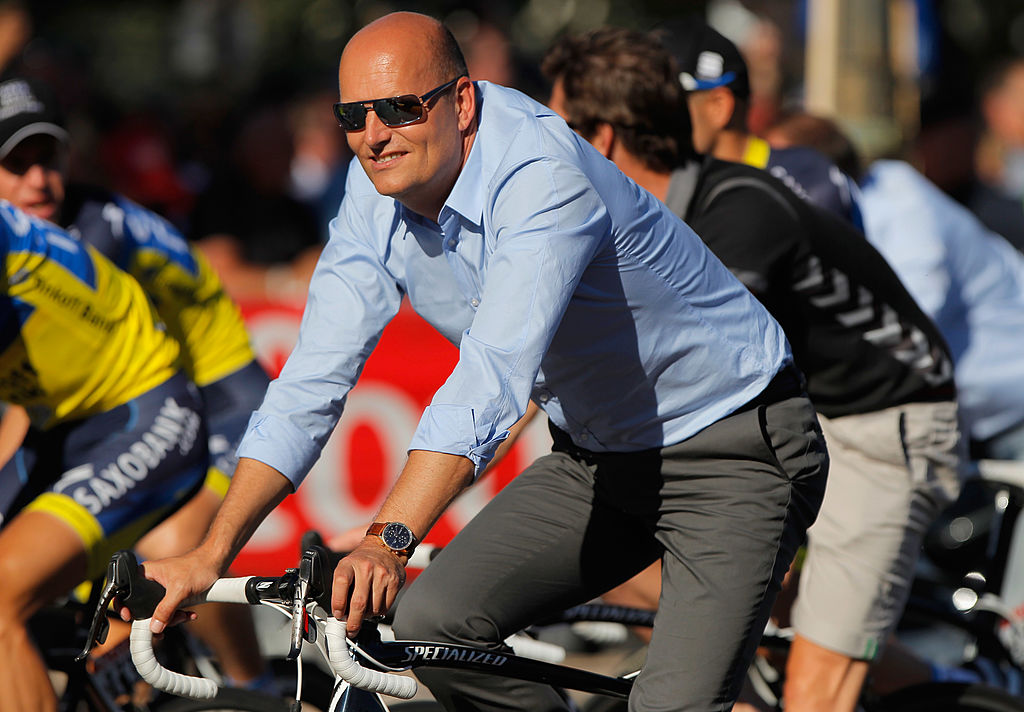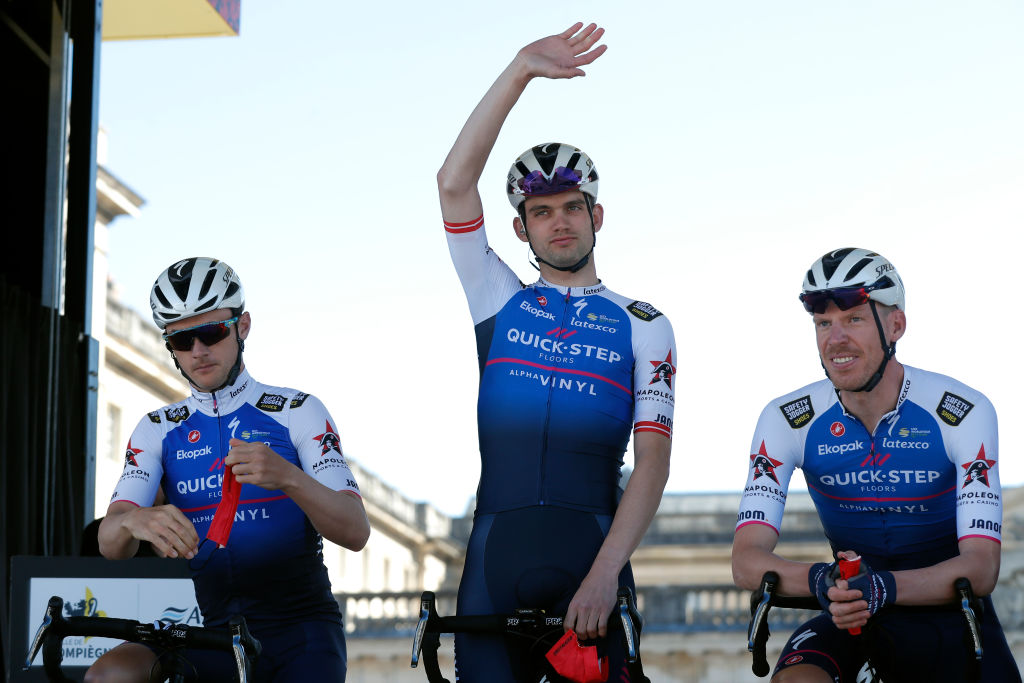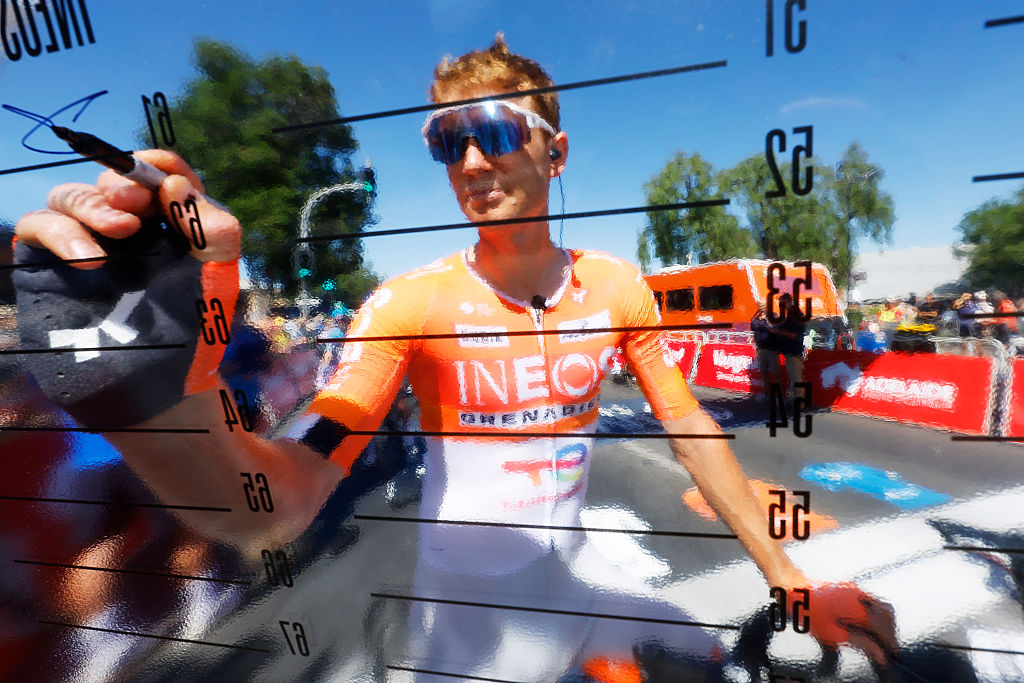Bjarne Riis snubbed from home soil Tour de France start
Danish riders want to leave past doping legacy behind as Tour kicks off in Copenhagen

The latest race content, interviews, features, reviews and expert buying guides, direct to your inbox!
You are now subscribed
Your newsletter sign-up was successful
Bjarne Riis, the only rider from Denmark to have won the Tour de France, was not invited to the festivities in Copenhagen, being left off the list of dignitaries invited to participate in the Grand Départ on Friday by organisers ASO.
"Of course, I'm sorry not to be there. I had hoped for that," Riis said to TV 2 Sport. "Unfortunately, it was not to be. That's life. That's all I have to say about it."
Riis is by far the best-known figure in Danish cycling, having stood atop the final Tour de France podium in Paris in 1996 and, after retirement, led Team CSC/Saxo Bank to the Tour victory in 2008 with Carlos Sastre, and in 2010 with Alberto Contador, although that title was later stripped due to a doping positive and awarded to Andy Schleck.
Also speaking to TV 2 Sport, Schleck said he felt Riis should have been invited. "A couple of weeks ago I spent a week with Bjarne in Denmark, and Bjarne is a hero. We walked through the streets and everyone knows him. He is the best cyclist Denmark has had.
"He is not the only person who runs around with a past that is not super good, but on the other hand, he won the Tour, and cycling in Denmark would not be where it is today without him."
While ASO typically invites Tour de France champions to the race, this year is not the first time Riis has been ignored. His relationship with ASO soured when, in 2007, he admitted to having used EPO, growth hormone and cortisone to achieve his 1996 Tour de France title.
He offered to give back the jersey, stating, "My yellow jersey is in a box in my garage at home. You can come and collect it. What matters to me are my memories."
The latest race content, interviews, features, reviews and expert buying guides, direct to your inbox!
Following that confession, the Tour de France director Christian Prudhomme announced that ASO had erased Riis' name from its list of past winners in the annual road book, although the UCI never officially disqualified Riis because he confessed after the statute of limitations had expired.
In 2020, Riis formally apologised ahead of the official route announcement that confirmed the Tour's start in Denmark. Prudhomme accepted the apology, but said, "It does not mean that you can strike a line over the past, I welcome it and it is a step forward."
The local organising committee, Grand Départ Copenhagen Denmark, said it had prioritised "official representatives of Danish authorities" over Danish riders.
Prudhomme echoed the statements, responding to questions about Riis' absence, stating "we work with politicians and not with former riders" but indicated he did not hold a grudge.
"I know about the past. It is not so good and nice. But if he stood in front of me, I would of course shake his hand," Prudhomme said.
Current Danish stars want to turn the page

Riis is not the only Dane to have been caught in cycling's murky past. QuickStep-AlphaVinyl directeur sportif Brian Holm, a former teammate of Riis, also admitted to using EPO during his career. Michael Rasmussen, removed from the Tour de France in 2007 by his Rabobank team for whereabouts violations, admitted to using a slew of performance-enhancing drugs following Lance Armstrong's doping confession and lifetime ban.
It's a legacy of Danish cycling that current riders like QuickStep-AlphaVinyl's Kasper Asgreen want to leave far behind.
"I think there's been a huge cultural shift surrounding the doping past that we had in cycling, not only in Denmark but across the whole world," Asgreen said in a press conference on Wednesday.
"I think the main part of the cycling community, our fans, now believe we're racing clean, and I'm really happy to be a rider in this day and age instead of being a rider when it was necessary to compete, and you're really forced to make that decision if you wanted to be a professional."
Riis was also caught up in the Operacíon Puerto doping scandal as a figure who sent riders to controversial doping doctor Eufemiano Fuentes, and various confessionals described the EPO-fuelled 1990s and early 2000s during Armstrong's Tour de France reign as an atmosphere where it was difficult to be competitive without doping.
Asgreen said that era is over. "It's just not a consideration anymore - you don't have to worry about it, because at least, in my experience, you enter the pro ranks and you have a chance immediately. It's not like you're just getting destroyed, you can contribute with work that helps out your teammates and some guys are even strong enough to win from their first year like Mr Fabio [Jakobsen] over here," he said, referring to his teammate.
"I was not one of those, but could enter directly in the team and help out, you see the difference is not that huge. With a bit more experience and a bit more work in the legs, you'll get there, so I think [doping] is not a consideration for anybody anymore and the broad cycling community and all the fans, they believe in that at this point, at least I hope they do."
Jonas Vingegaard, a surprise podium finisher after Jumbo-Visma teammate Primož Roglič crashed out of the Tour de France in 2021, said he understood if fans doubted the integrity of the current peloton.
"There are always doubts because of what they did, and that's normal. That's how it should be," Vingegaard said, adding he didn't feel like his country's dark past was a problem for him. "If I was a spectator, I would also have my doubts of what they did in the past.
"I don't feel like it's hindering me. Now cycling has changed, so for me, I don't feel like it's something bad."

Laura Weislo has been with Cyclingnews since 2006 after making a switch from a career in science. As Managing Editor, she coordinates coverage for North American events and global news. As former elite-level road racer who dabbled in cyclo-cross and track, Laura has a passion for all three disciplines. When not working she likes to go camping and explore lesser traveled roads, paths and gravel tracks. Laura specialises in covering doping, anti-doping, UCI governance and performing data analysis.
